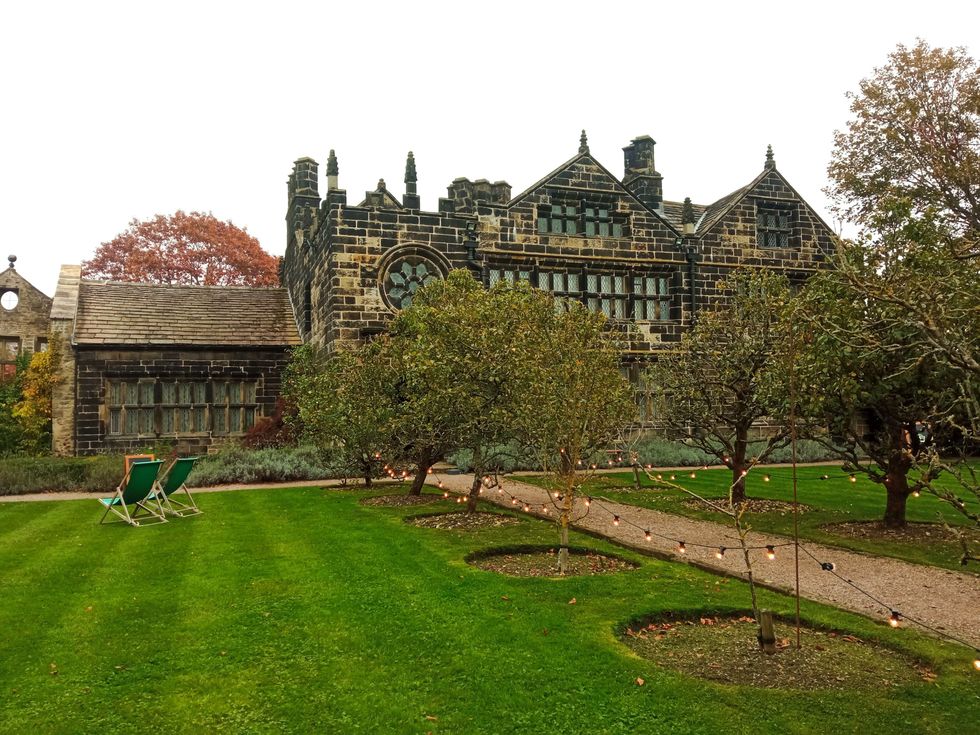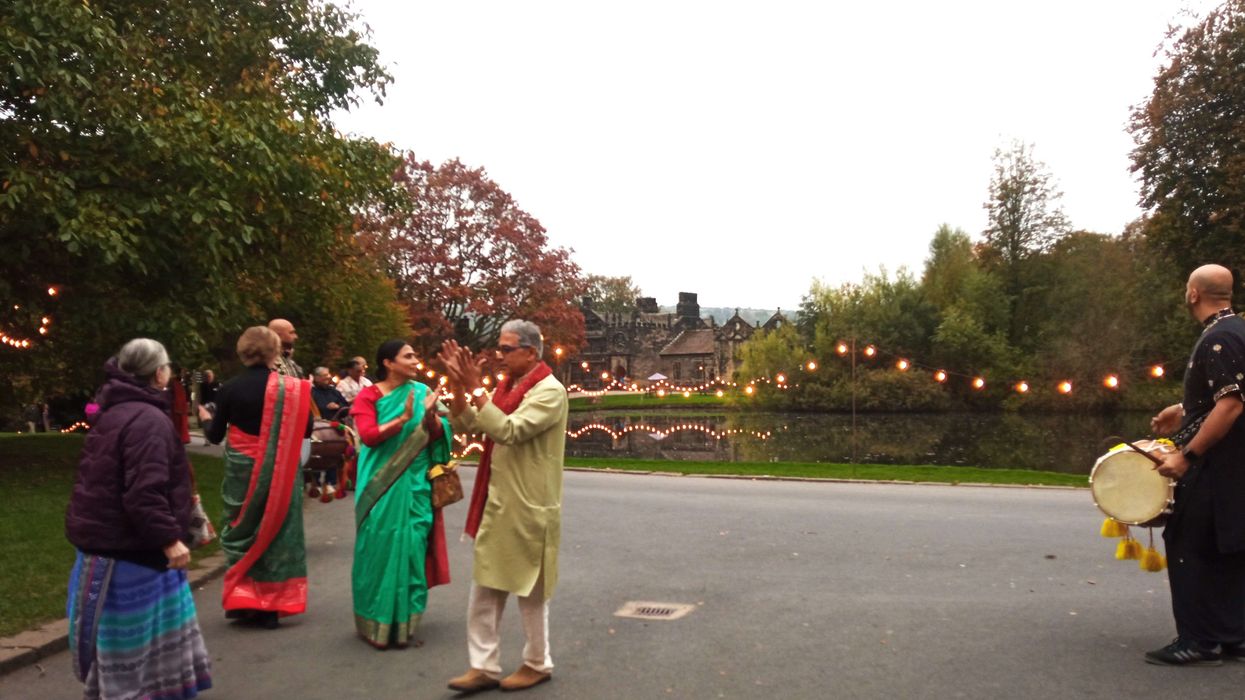EAST RIDDLESDEN HALL, an ancient manor house in Keighley, West Yorkshire, which has been owned by the National Trust since 1934, has been lit up for Diwali.
The hall has been decorated with statues of Hindu deities, saris and kurtas, Asian board games, marigolds, posters with handwritten notes, and rangoli drawings by eight- and nine-year-old children of all faiths from a local primary school. Diyas have lit up its dark interiors.
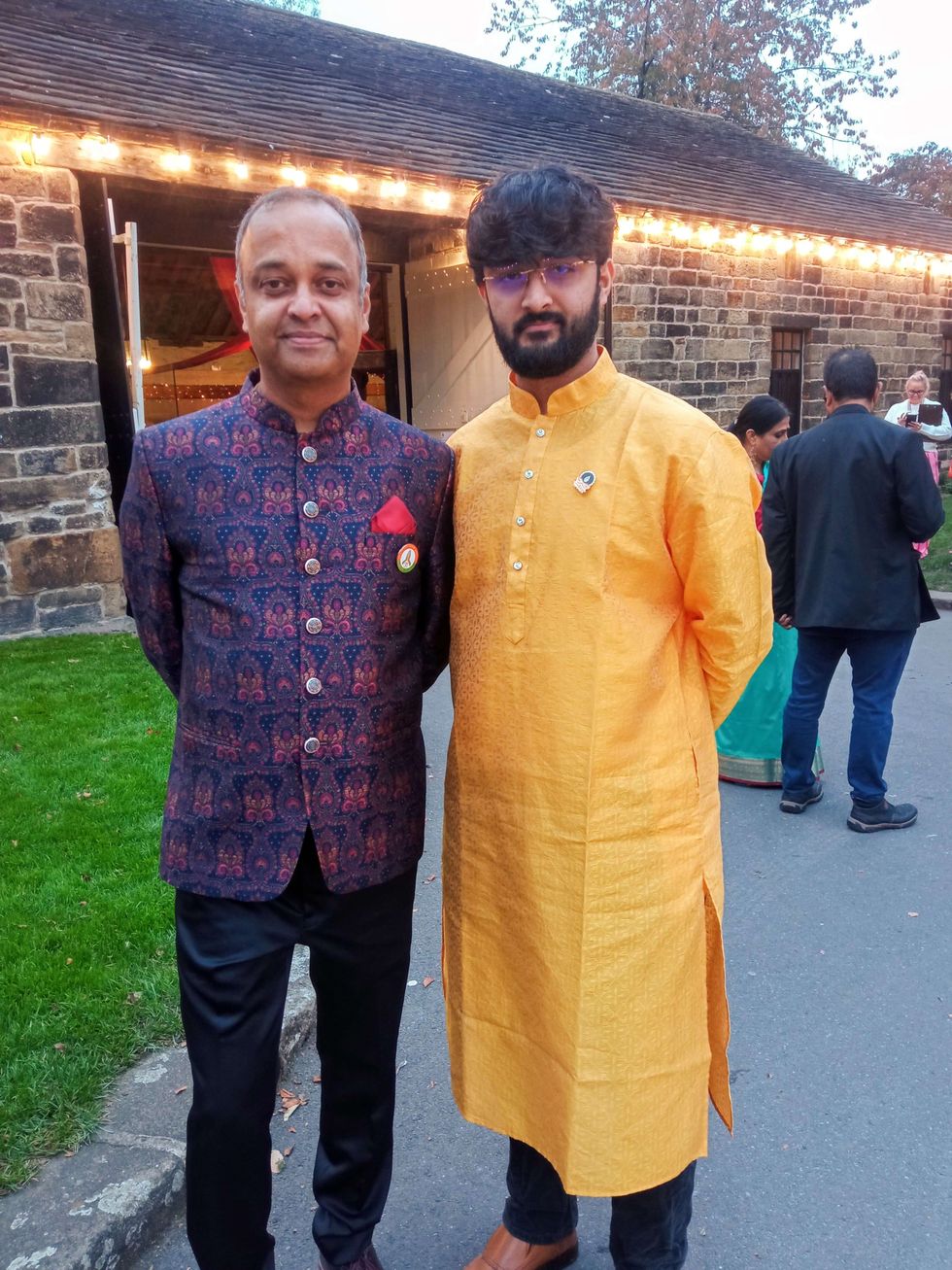
And the local Indian community has responded very positively to the trust’s attempts to attract visitors from all sections of British society.
Among those who helped organise the celebrations was Jayaraj Nambiar, vice-chairman of the Bradford Hindu Council. He came with his 21-year-old son, Abhay Nambiar, who recently graduated in computer science from Nottingham University. Neither had ever visited a National Trust property, even though nearly a hundred have strong Indian connections.
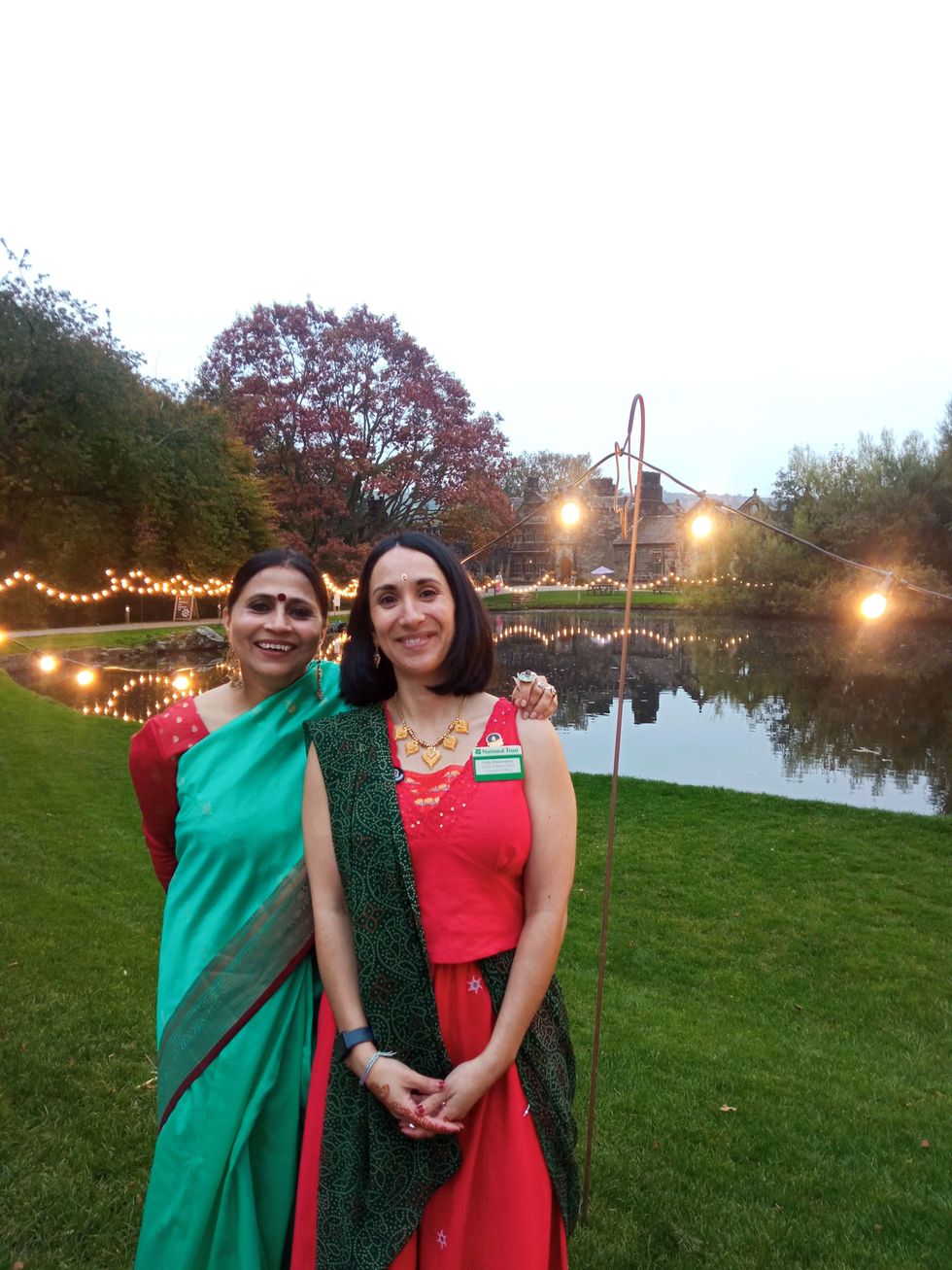
Jayaraj admitted: “What I have learnt in the past 18 months to two years of my engagement with the National Trust is how little first, second and third generation immigrants know about the National Trust. People don’t even know this body exists, forget East Riddlesden Hall.
“I have been an IT professional for almost 30 years, have been in the UK for 21 years, and lived locally in Keighley for the past 10 years. And I never knew about the existence of this hall. Yes, there is a board (now with writing in Bengali and Urdu even), but I would just zoom past in my car. About English history, our people are not so interested, if I can say so bluntly.”
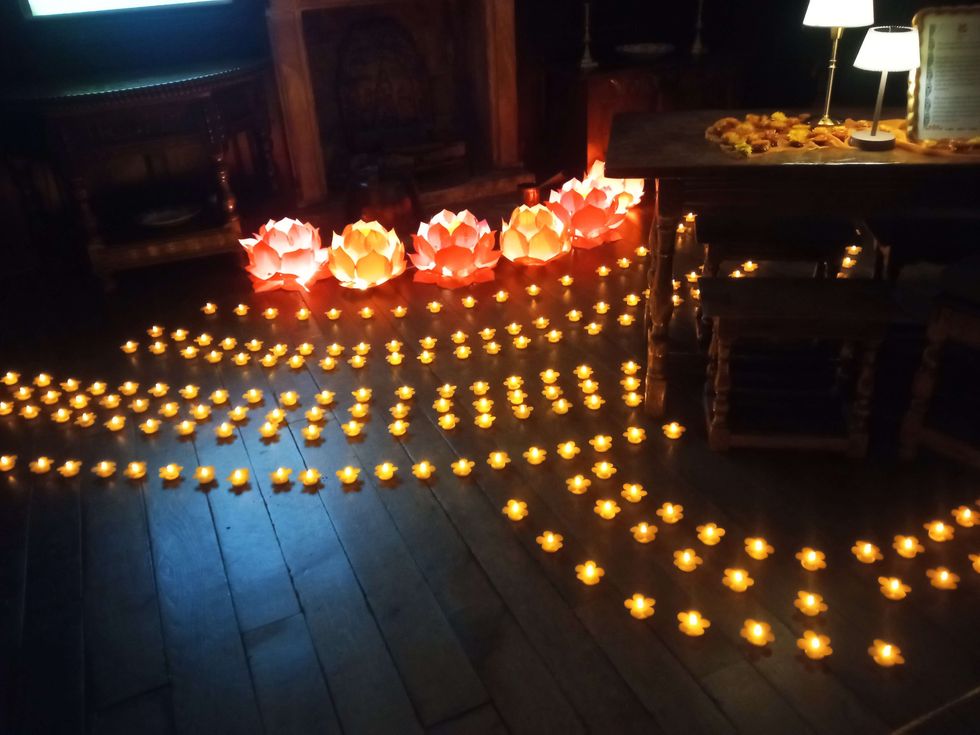
But it seems the trust has unlocked a door through marking Diwali.
“That’s what drew me in,” Jayaraj added. “The best example is my son and myself. I was more thrilled about the Diwali aspect. He was more interested in the history of East Riddlesden Hall.”
Abhay agreed: “What caught my eye was the history of the place. I didn’t know this place even existed.”
This is, of course, the challenge for the trust, which has traditionally appealed to white middle class folk.
East Riddlesden Hall, built of dark stone, has a singularly sinister history. The Grade I listed manor house was built in 1642 by a wealthy Halifax clothier, James Murgatroyd. The Murgatroyd family are reputed to have been the inspiration for the Murgatroyd Baronets in the comic opera Ruddigore by Gilbert and Sullivan. Sir Despard Murgatroyd, the evil baronet in Ruddigore, is forced by a family curse to commit a crime every day or die in agony. At the end of the opera, the curse is lifted and the erstwhile villain free to marry, Mad Margaret, the woman he loves.
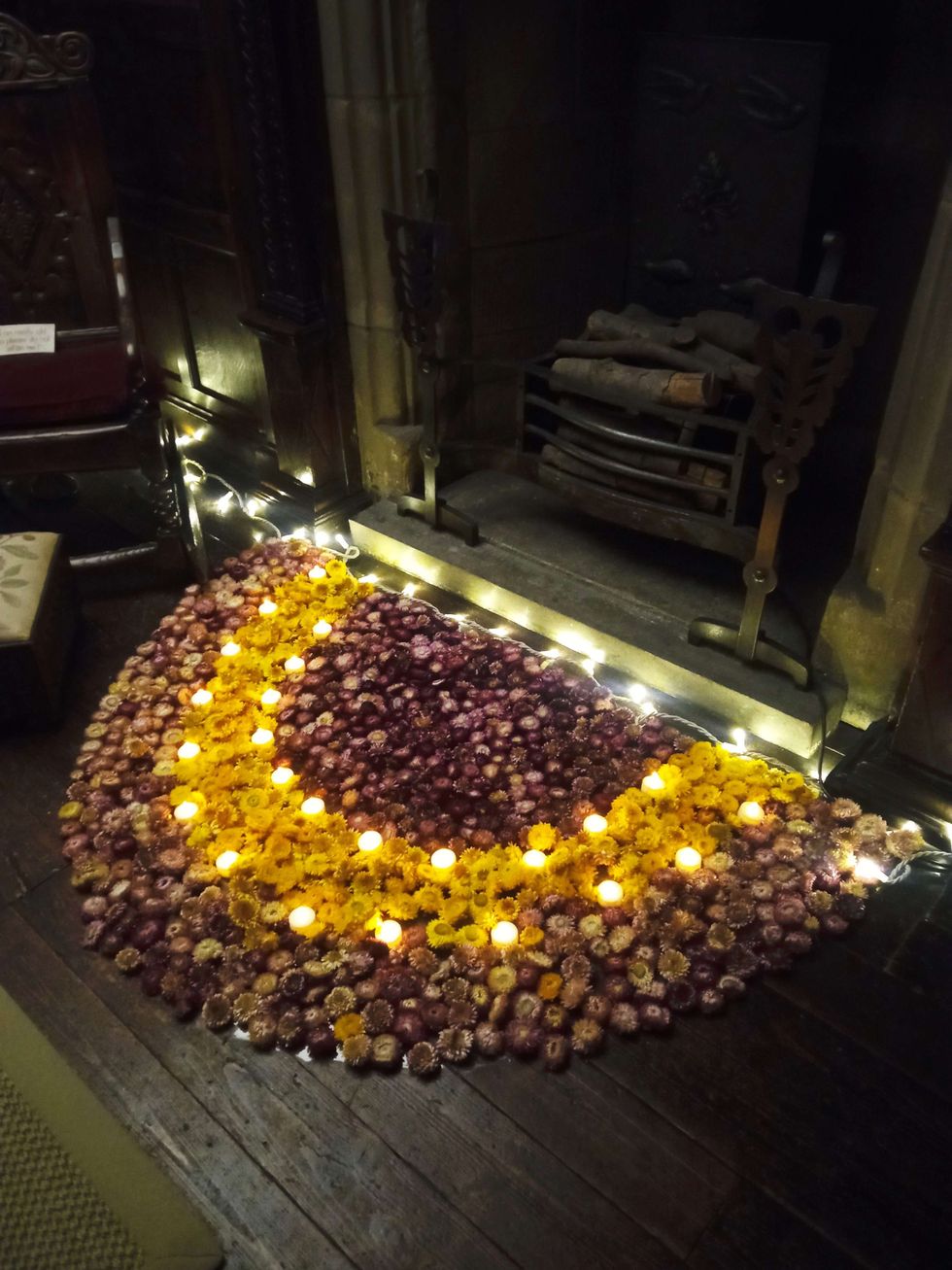
Jayaraj found a connection with Diwali when he addressed guests gathered in the Airedale Barn for the ceremonial lighting of the diya.
“Here is a beautiful 17th century manor,” said Nambiar. “I find it really inspiring that in 1933, two local brothers, William and John Brigg, stepped in and saved this hall from demolition. Somebody was trying to knock this place down and take all the stones away.
“But in that moment of darkness, the two brothers brought light into this place, donated it in 1934 to the National Trust, and enshrined that it should be conserved and used for recreation by the local communities. And that vision is celebrated in Diwali. And this hall has been transformed into something magical; the lights, music, colour, joy perfectly capture the essence of Diwali, of light over darkness and truth over evil.”
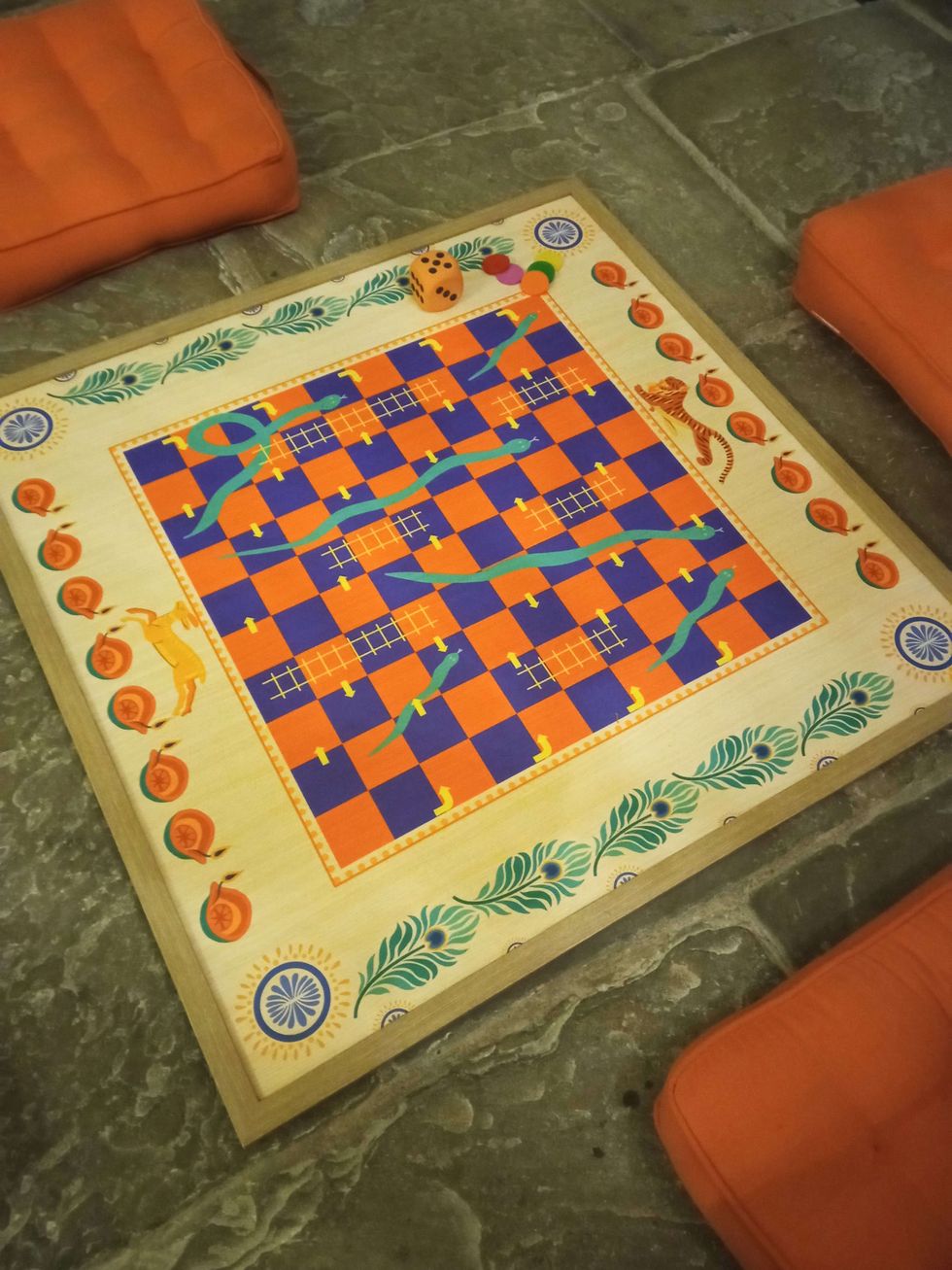
And that is a message the local Indian community, who mostly work as NHS doctors and nurses at Airedale General Hospital, can understand. The trust is extending its reach into the Asian community with its Diwali programme.
Simran Sandhu, the creative producer for Diwali in the central team, said: “We are doing Diwali across different properties in the UK – Osterley Park in west London, Bateman’s (Rudyard Kipling’s home) in East Sussex, Wightwick Manor in Wolverhampton, Kedleston Hall (home of the Curzons) in Derbyshire and East Riddlesden Hall.
“We are enabling other properties to do this kind of thing. My aim is ultimately to build a resource library for properties across the trust so that whosoever wants to will have a ready-made resource to dip into for use.
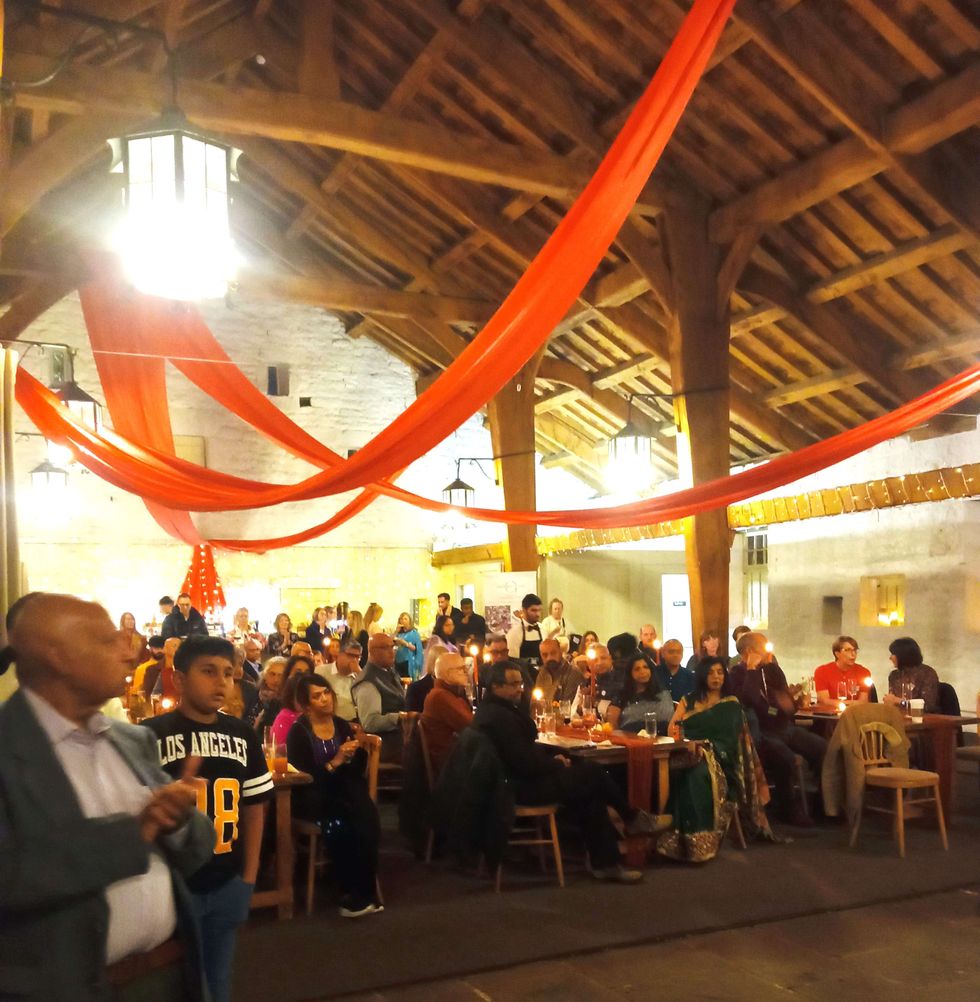
“Personally, I see Diwali as a festival of light, bringing cultures together, not necessarily faith based.”
Sandhu added: “We are quite mindful of the spirit of every place. So, for the event planned at Red House (in Bexleyheath, London), the trust is working with the local community in showcasing William Morris’s designs and his connection with India as well.”
She said celebrating Diwali “has definitely opened people’s eyes to the National Trust as an organisation. As Diwali becomes normalised, we will have more and more people come in, adding an amazing cultural dimension to the National Trust’s existing offer.
“Diwali is a joyful event because it just transforms National Trust places. We are looking at properties that have a connection to India or south Asia or where there is a huge diaspora population. Here (at East Riddlesden Hall), we have a diverse audience, a mix of Hindus, Muslims and other nationalities and faiths. If we reach out to new audiences and people feel welcome, that’s always been (founder) Octavia Hill’s vision.”
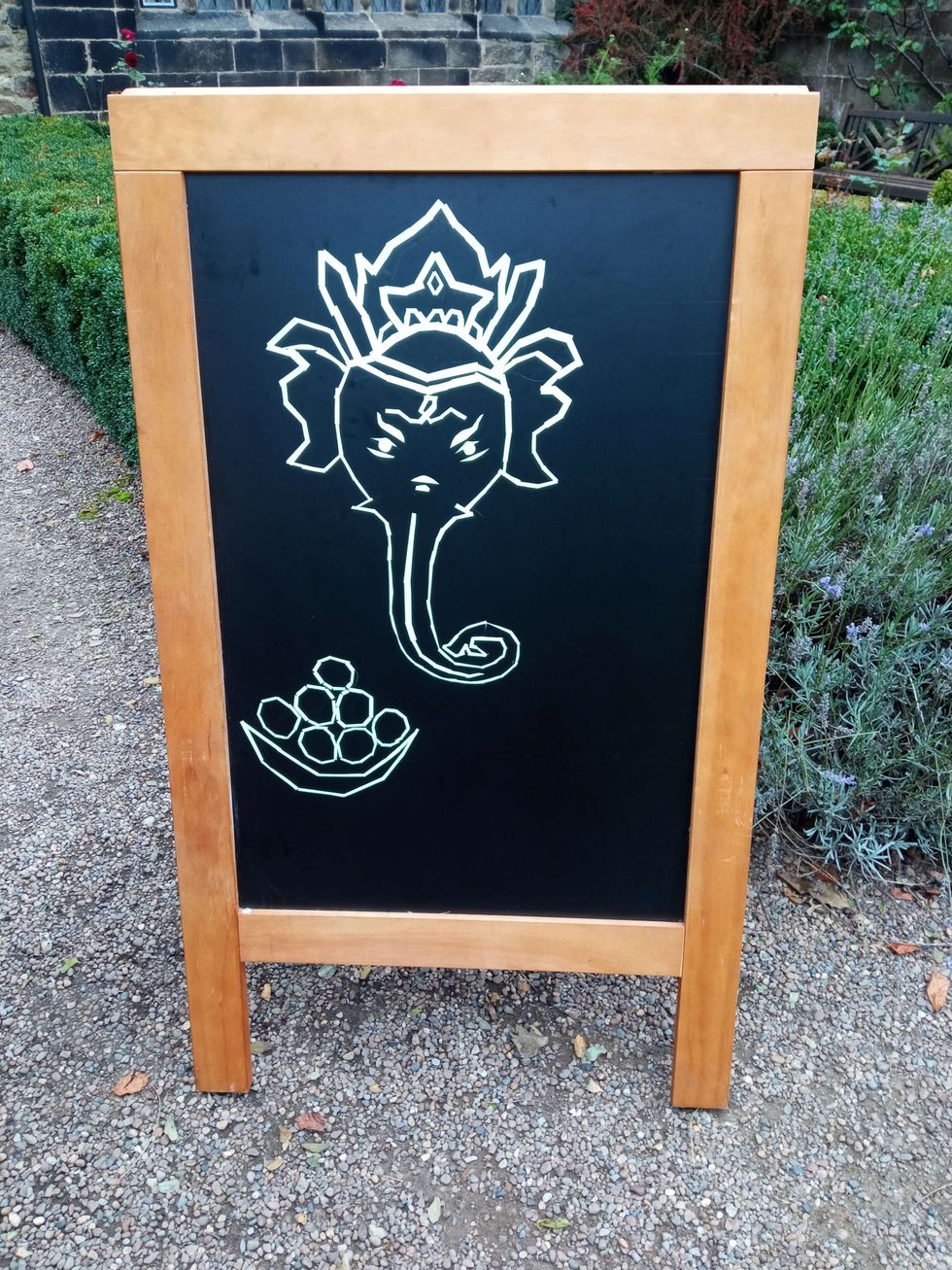
Emily Ghassempour, senior volunteering and communities officer, who worked closely with the Bradford Hindu Council and other local organisations, thanked them “for supporting and helping us, guiding us, teaching us, and giving us all the information that we needed to make sure our offer is as authentic as it absolutely should be.”
Some of the Englishwomen were helped by their Indian friends to wear saris for Diwali.
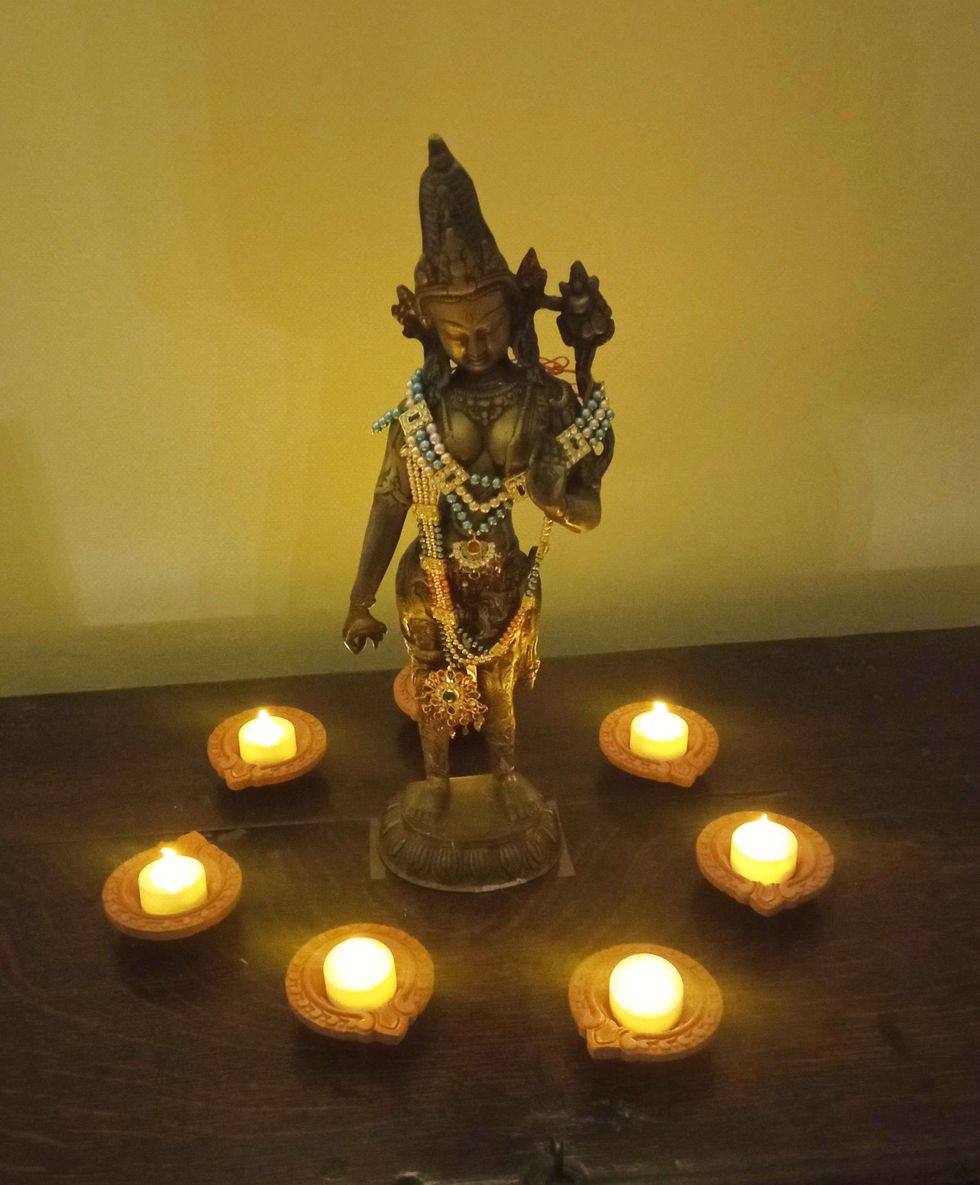
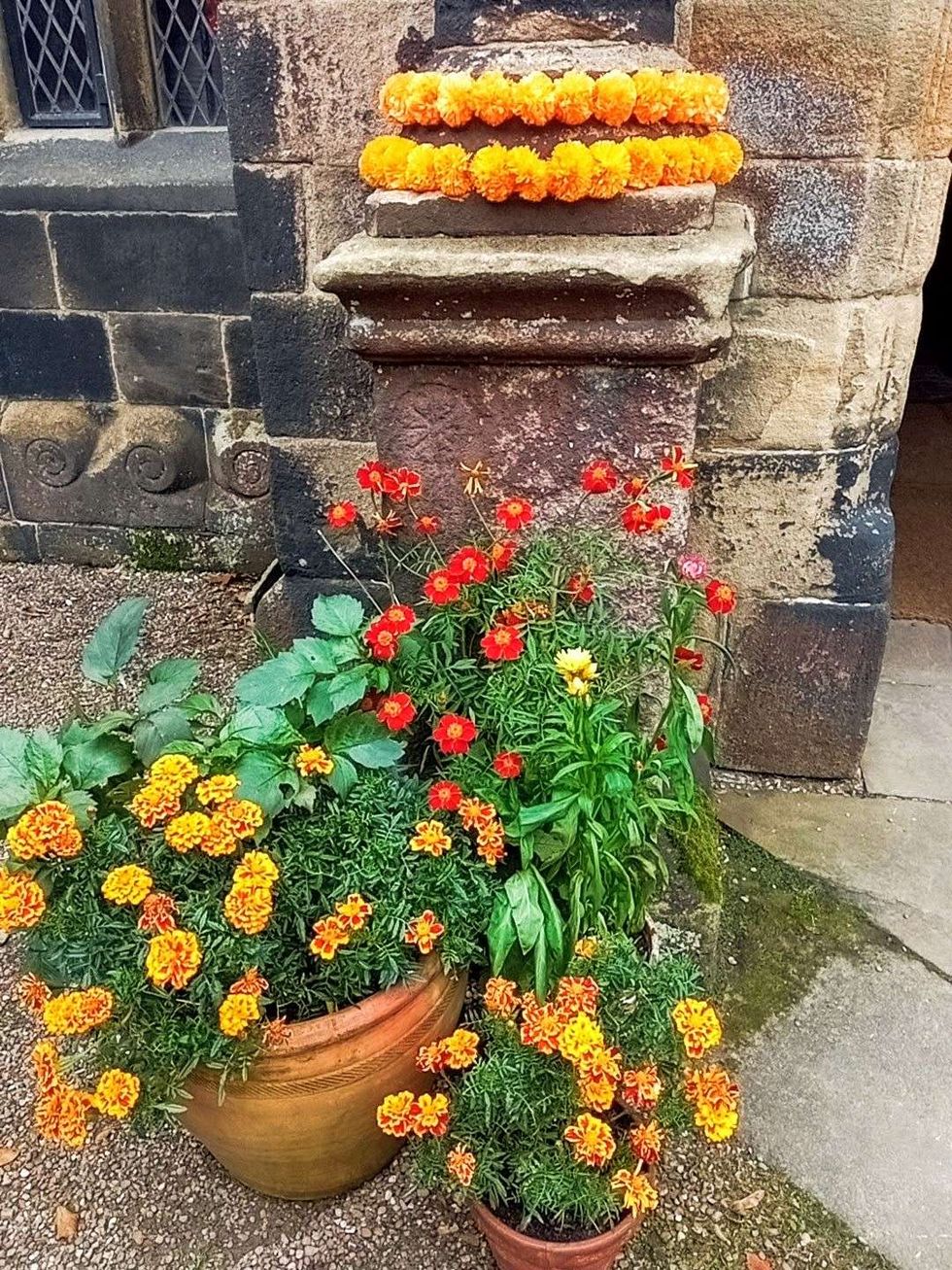
Under the leadership of director general Hilary McGrady – she has been touring the Diwali sites – the trust appears resolved to end what it considers “unequal access” to its properties.
East Riddlesden’s general manager, Joanne Hudon, said in her speech in the barn: “Our local community is absolutely central to what we do. We’ve been working with our friends from the Bradford Hindu Council and local community groups to share their stories of Diwali and tales from every corner of India. Our monthly chai and chat sessions have really helped us develop our Diwali champions. They have given incredible support in everything that we’ve done here. Our community friends have generously shared some of their beautiful belongings, beautiful clothing, which we have been able to put on display for everybody to admire and learn about.
“Everybody is welcome to experience Diwali at East Riddlesden Hall, whether you’re discovering the festival for the first time, seeing this historic place in a new light, or celebrating familiar traditions in a new setting.”
